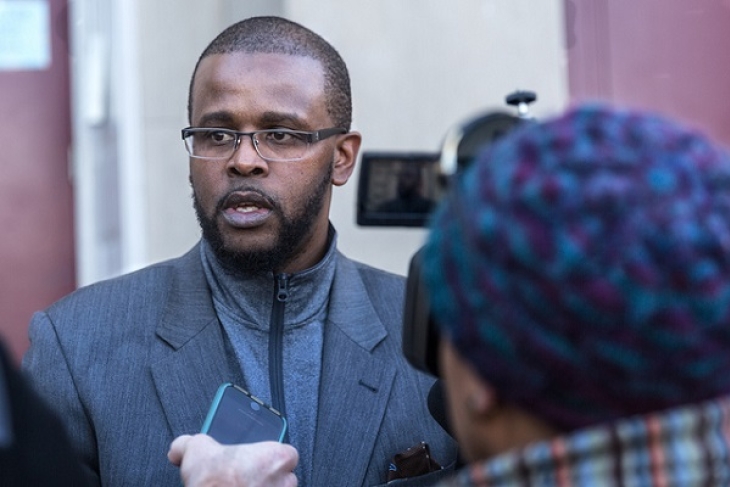The selective outrage of partisan ideologues in the education space is a well-known phenomenon and nowhere is that more on display than in the muted reaction to the scandal surrounding the 2017 graduation rate that has been unraveling in Washington in recent weeks. With the release of the final report of the audit ordered by the city’s mayor, Muriel Bowser, we know, unequivocally, that more than one-third of the Washington public schools’ class of 2017—a total of nine-hundred students—were only granted diplomas because their teachers and administrators flouted attendance policies and misused credit-recovery programs.
One would think that the loudest accountability hawks in the education reform movement would be beside themselves, writing op-eds, and taking the battle to Twitter in the name of justice for students. But as the details of the graduation-rate investigation by NPR and Washington’s local public radio station (WAMU) have emerged, these avatars of accountability have been uncharacteristically silent. The very same folks who are quick to jump on the slightest whisper of wrongdoing in virtual charters and voucher programs, for example, have suddenly lost their aversion to dishonesty and fraud. When the reforms they support are carried out by people they like and align with politically, their commitment to accountability appears to soften. And maybe that would be understandable, except that students and families suffer when silence settles over a deliberate and well-orchestrated injustice inside a school system.
While the Center for American Progress, for example, was relentless on the issue of accountability in their opposition to Betsy DeVos’ nomination for Secretary of Education, they have had virtually nothing to say about what we now know happened with the class of 2017 in Washington’s public schools. And even former Secretary Arne Duncan who is reliably vocal on issues of truth and accountability, has been quiet on this.
When students miss more than ninety days of school and still graduate on time, silence is not an option. When credit-recovery courses are abused, silence is not an option. And when emails reveal that knowledge of the problem had made its way all the way to the chancellor’s office but no action was taken, silence is not an option.
Calling out Washington’s fraudulent graduation rate would damage the reform narrative. The nation’s capital has been hailed as proof that reform can work to turn around a big city system and increase its graduation rate. And for a time, that seemed to be true. So where are those same cries of an educational “wild west” that we heard nonstop during the lead up to Betsy DeVos’ confirmation hearing? If phony diplomas, undocumented suspensions, and credit-recovery abuse don’t conjure up images of a wild west, it’s hard to imagine anything that would.
All credibility flies right out the window when we pound our fists, lash out on Twitter, and demand a certain level of standards of one group only to then hold our friends and allies to a lower and more convenient standard. The situation in Washington is unconscionable and Chancellor Antwan Wilson, although admittedly little more than a year into the role, should have said so right from the start. He should have owned it and vowed to correct it. He didn’t.
And troubling patterns like the one in the city are beginning to emerge in other states across the country. Wilson’s response could likely serve as a model for other state and city leaders of what not to do when the wheels come off a fake—or greatly exaggerated—story of success.
WAMU’s Kate McGee reports that “since publishing our initial investigation, we have found this story playing out in schools across the country. We have heard from teachers in Vermont, West Virginia, Illinois, Maryland, South Carolina, Massachusetts, New York, Wyoming, Ohio, and Pennsylvania. It’s clear that schools everywhere are promoting and graduating underprepared and chronically absent students by pressuring teachers and using shortcuts.”
This should be a clarion call to school boards across the country to ask tough questions about their districts’ own graduation rates and how they’re achieved. A sham education has to draw our ire no matter where it’s happening and on whose watch. Whether it’s the Electronic Classroom of Tomorrow online charter school network in Ohio that abruptly closed its doors a few weeks back or all but two Washington high schools giving out diplomas based on lies, political ideology should have nothing to do with our response. There is no justification for railing against one and staying silent on the other.
It’s hard to know what the appropriate consequences are for those who were active and willing participants in the systemic deception and fraud we now know occurred in the city’s schools. Nat Malkus, a resident scholar and the deputy director of education policy at the American Enterprise Institute, certainly gives us something to think about when he points out that in medicine, law, and automobile manufacturing, fraud and deception lead to serious consequences not only professionally but civilly and criminally as well. He reminds us that educators in Atlanta were fired and even went to jail for getting caught changing student answers on state tests in 2009. A harsh punishment indeed. “But is systematically changing test answers any worse than systematically turning high schools into diploma mills?” Malkus asks.
Those decisions are best left to those in Washington who now have the enormous responsibility of restoring trust and truth to what has suddenly become a school system mired in doubt. In the meantime, I’ll just keep hoping for a day when folks who support reform—as I do—will take off their partisan and tribal blinders and actually stand up for accountability simply because it’s the right thing to do.
Editor’s note: This article originally appeared in a slightly different form in Education Week.
The views expressed herein represent the opinions of the author and not necessarily the Thomas B. Fordham Institute.

